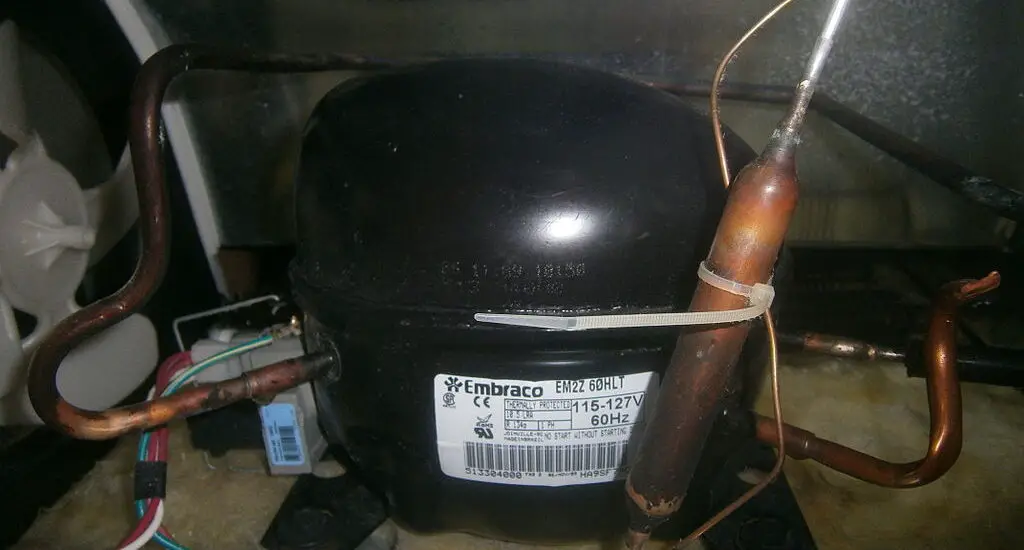Are you puzzled by the question, “Do refrigerator compressors have capacitors?” This comprehensive guide will dissolve any confusion by clearly explaining the role of capacitors in your refrigerator’s compressor. Read on to have all your questions answered.

Table of Contents
Understanding Capacitors
In the world of electronics, a capacitor is a small but powerful device that stores electrical energy temporarily. When needed, it releases this energy to assist in the operation of electrical motors and circuits. The capacitor is somewhat like a short-term battery but can deliver a large amount of energy in a very short time.
Do Refrigerator Compressors Have Capacitors?
The short answer to the question “Do refrigerator compressors have capacitors?” is yes, the majority of modern refrigerator compressors do have capacitors. These capacitors are electrical components designed to store and release electrical energy quickly. In the context of a refrigerator, they are crucial for the compressor’s operation.
When your refrigerator is plugged in, or when the thermostat signals for a cooling cycle, the compressor needs to start up. However, starting the compressor requires a surge of electrical energy that is greater than what is needed for it to continue running. This is where the capacitor comes into play. It provides the initial burst of energy to kickstart the compressor.
The capacitor is connected to the compressor via electrical wiring and is usually situated near the compressor within the refrigerator’s machinery at the back. This is a standard setup in refrigerators from most manufacturers, such as Whirlpool, LG, Samsung, and GE, among others.
Why Do Compressors Need Capacitors?
Now that we’ve established that refrigerator compressors generally have capacitors, you might wonder why they are necessary. The primary role of a capacitor in this context is to assist with the compressor’s startup.
Imagine a parked car; to get it moving, you have to exert a significant amount of force initially. Once it’s moving, it takes much less effort to keep it in motion. Similarly, the compressor motor faces resistance or inertia at the start. The capacitor provides a brief but powerful burst of electrical energy to help overcome this resistance.
Without a capacitor, the compressor would take longer to start, leading to inefficiencies in the cooling cycle. This could result in higher energy consumption and costs, and potentially a shorter lifespan for the compressor. Therefore, the capacitor plays a vital role in the efficient and effective operation of your refrigerator.
Check out these other articles…
Is It Worth Replacing Compressor on Refrigerator? Answered
Can a Refrigerator Compressor Explode? What Experts Say
Can a Refrigerator Compressor Catch Fire? Detailed Answer
Can a Refrigerator Compressor Be Recharged? Quick Answer
Do Refrigerator Compressors Get Hot? Comprehensive Answer
Can I Replace a Refrigerator Compressor Myself? Quick Answer
What Makes a Refrigerator Compressor Go Bad? 3 Major Factors
How to Identify a Capacitor in a Refrigerator
Identifying a capacitor in a refrigerator is relatively straightforward if you know what to look for and where. Before proceeding, make sure to unplug the refrigerator to ensure your safety.
The capacitor is generally located near the compressor at the back of the refrigerator. You may have to remove a protective panel to access it. Once exposed, the capacitor is a cylindrical component, often about the size of a soda can or smaller. It usually has two electrical connectors on one end, where it is connected to the compressor.
Capacitors can come in different colors and sizes, but their basic shape is usually the same. It is crucial to remember that capacitors can store electrical energy even when the appliance is unplugged, so avoid touching the terminals unless you are experienced in electrical work.